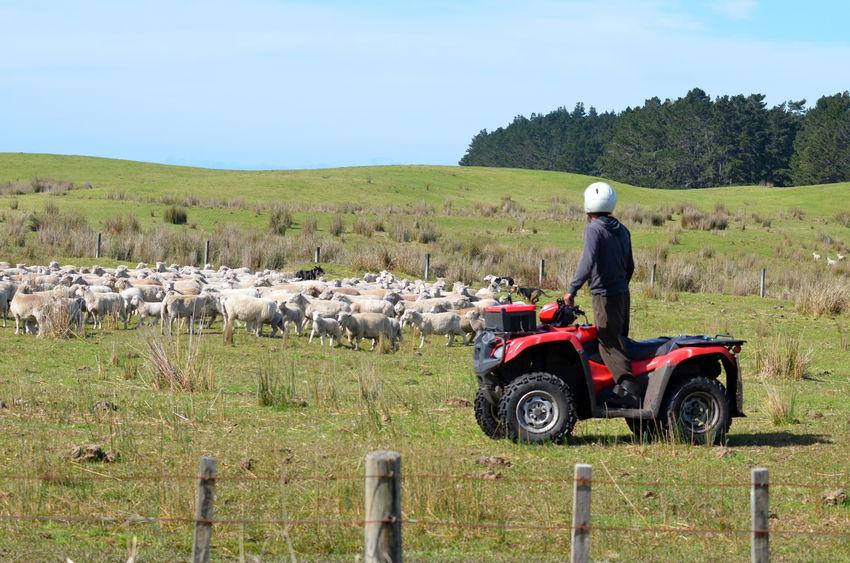Tariff free trade with EU needed to safeguard UK sheep farming, NFU says

The NFU has urged the government to implement tariff free and frictionless access to the EU marketplace to safeguard the UK's significant sheep sector.
Minette Batters, NFU President will today (21 May) underline the importance of an ambitious trade deal with the EU for UK agriculture, in particular for the sheep sector.
During a visit to England’s largest sheep producing area, the Yorkshire Dales, Mrs Batters will highlight the significance of the sector to the UK economy.
In 2015 the value of sheep meat exports to the EU topped £302 million – representing 95% of all such exports. Other exports of offal and sheep skins added a further £66m to the UK economy.
The NFU President will spend the day in Skipton meeting local sheep farmers and will officially open a new livestock sales complex at Craven Cattle Mart.
The complex, which includes two bespoke sale rings, represents the biggest single investment at the site in more than a decade. With 30% of England’s sheep to be found in Yorkshire and the North East, sheep production is vital to the rural economy.
Sheep production is fundamental for virtually all farming businesses in the local area, and for maintaining the world-famous landscape that brings millions of tourists flocking in every year.
'Sharp focus'
Speaking ahead of the visit, Mrs Batters highlighted the fact that this year’s lamb sales will be the last before the UK enters unchartered territory outside membership of the EU.
“This brings into sharp focus the importance of securing a favourable trade deal with the EU, especially given the value of the sheep sector to the UK and the value of European export markets for sheep meat,” she explained.
“The trade deals the country is now negotiating seem very far away, with few of us actually exporting or importing directly. But trade is absolutely fundamental to the future of our livestock industry.
“With so much at stake, the UK Government must adopt a trade policy which prioritises tariff free, frictionless access to the European marketplace.”
Market stability
The NFU President said frictionless trade is crucial to underpin market stability – vital not just for farmers but the many wider supply chain businesses that depend on a thriving sheep sector.
She said whilst there are opportunities to explore new trading agreements with nations around the globe, the UK must not turn its back on the EU, which has influenced the development of the UK's livestock industries.
“Farmers are determined to continue delivering for the nation. Whether that’s providing quality, safe, traceable food for everyone, no matter what their budget, or managing iconic landscapes and helping the country achieve its environmental aspirations,” Mrs Batters added.
“But to do this we need the Government and its trade negotiators to understand the very real challenges facing livestock farmers as we head into unchartered waters and be ambitious in their negotiations.”
High tariffs
The leader of the UK's sheep farmers has also warned about potential volatility for the industry in the face of Brexit.
Phil Stocker, chief executive of the National Sheep Association (NSA) told FarmingUK if the UK lost access to the Single Market, tariffs to the European Union could be so high that exporting lamb to the EU would simply not work.
He also raised concerns about the threat of cheap Australian and New Zealand lamb imports to UK farmers if the British Government allowed free access as part of newly negotiated trade deals.
Even if trade deals could be negotiated with countries like Australia and New Zealand, Mr Stocker said British farmers would need some protection from cheap imports.
For the Scottish sheep sector, a report by the AHDB has revealed it could be destroyed by a 'hard' Brexit, with average incomes expected to decline by 210 per cent.
A report analysing the impact for the South West's "vital" sheep sector has warned of the consequences reduced BPS payments could bring to farmers.








